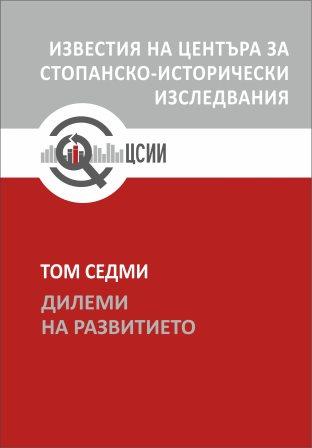Икономически прочит на османската конституция от 1876 година
An Economics Reading of the Ottoman Constitution of 1876
Author(s): Hristiyan AtanasovSubject(s): History, Economy, National Economy, Economic history, Political history, Social history, Modern Age, 19th Century, Socio-Economic Research
Published by: Център за стопанско-исторически изследвания
Keywords: Tanzimat; Reforms; Ottoman Constitution; economics; finances; liberalism; capitalism
Summary/Abstract: On 3 November 1839, the Grand Vizier Mustafa Reşid Pasha solemnly read out a sultan’s order (Hatt-ı Şerif) marking the beginning of significant transformations in the Ottoman Empire. Thus began the Tanzimat (from tanzimat – reorganisation, reconstruction), or the period of reforms. A period marked by the extreme polarisation of the Ottoman administrative elite, which would divide itself into a pro-Western liberal group and one that defended religious traditions and opposed change in the empire. The struggle between these antagonist groups would be fought with variable success. The liberals would seemingly win – they would provide the ideological inspiration for the next great reformist decree, the Sultan's Firman (Hatt-ı Hümâyûn) of 1856, and especially the Constitution (Kanun-i Еsasi) promulgated in late 1876. Ultimately, however, they would come to lose after a series of vicissitudes. Sultan Abdul Hamid II put an end to the constitutional reforms, dissolved the convened Ottoman parliament, and established an authoritarian regime until the Young Turk Revolution of 1908. The purpose of this article is to present and analyse, using an economic point of view, the three main acts of the Tanzimat – the Hatt-ı Şerif, the Hatt- ı Hümâyûn and to emphasize on the Constitution. The latter, although ambiguously assessed in scholarly literature, appears as a logical conclusion of the reform period. Despite its short duration, it presents the ideology of reforms in terms of property, finance and economics. The constitution secured the most important principles of liberalism and capitalism and this should be considered as an undoubted achievement and significant breakthrough for such traditional society like the Ottoman. First of all, it guaranteed private property, ensured freedom of religion, freedom of the press, freedom of association and freedom of expression. Ottoman state finances became public and were placed under the control of deputies elected by the subjects, a significant step in the direction of modern budgeting and auditing.
Journal: Известия на Центъра за стопанско-исторически изследвания
- Issue Year: VII/2022
- Issue No: 1
- Page Range: 90-102
- Page Count: 13
- Language: Bulgarian

